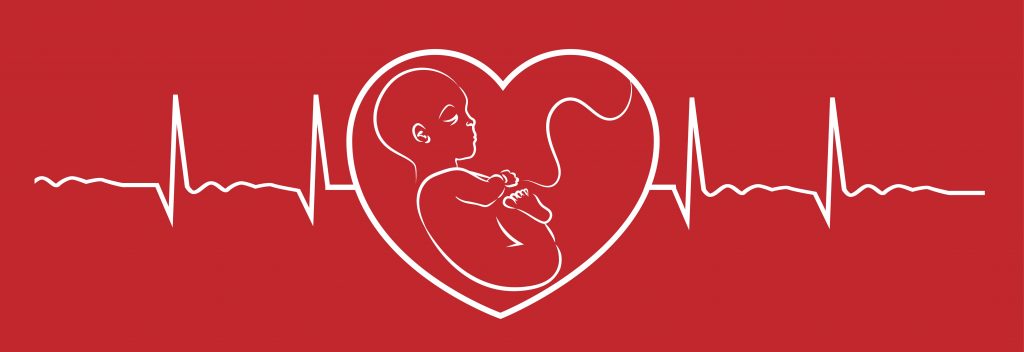Tell your state legislatures to pass pro-life heartbeat legislation!

A beating heart is an unmistakable sign of life.
Yet sadly, since the Supreme Court’s tragic Roe v. Wade decision, tens of millions of unborn little ones with beating hearts have been deliberately terminated through abortion.
No person with a beating heart, no matter how small, should be deprived of the fundamental right to life.
In recent years, several states have introduced heartbeat legislation that would ban abortion from the very first moment a heartbeat can be detected. Three states, North Dakota, Arkansas and Iowa, have passed heartbeat bills into law. However, federal courts have prevented these laws from going into effect, noting that they are bound to follow the precedent set by the Supreme Court in Roe v. Wade and Planned Parenthood v. Casey.
Since the federal courts have blocked the Arkansas, North Dakota, and Iowa heartbeat laws, however, former President Donald Trump successfully appointed, not one, but three new justices to the Supreme Court. The balance of our nation’s highest court has now shifted. With Justices Neil Gorsuch, Brett Kavanaugh, and Amy Coney Barrett having now ascended to the bench, pro-lifers may finally have the long-sought deciding vote that could significantly scale back or even overturn Roe v. Wade.
The opportunity of the present moment is palpable. Now is time for every state to act and pass a heartbeat law which would ban abortion statewide from the very first heartbeat.
An unborn child’s heartbeat can be detected by ultrasound as early as 21 days after conception.[1] It is typically expected that a heartbeat can be reliably detected by 6 ½ weeks gestation (4 ½ weeks after conception)[2] or within a few weeks thereafter if not detected at that gestational age.
According to the Centers for Disease Control and Prevention (CDC), two-thirds of reported abortion in the United States in 2015 were performed at 7 weeks gestation or later.[3]
Very few pro-life initiatves have the potential to save more lives than heartbeat legislation. That is why we need a heartbeat law in every single state.
Make no mistake, we seek the day when all abortion is banned from the moment of conception. But the current political climate is not yet ripe for an outright ban on abortion. 11 states have already passed heartbeat bills into law, proving it is possible to ban abortion after the first heartbeat. Until the day comes when all unborn lives can be protected by law, a state wide heartbeat ban would save countless lives in the meantime.
Passing heartbeat legislation state by state is in fact a crucial and important step to overturning Roe. A state level heartbeat law is important because it would provide the Supreme Court with an opportunity to significantly scale back or even overturn Roe v. Wade once and for all. Because of the Court’s precedent in Roe and Casey, we believe that it is more likely that the Supreme Court would uphold state level heartbeat legislation than a pure ban on all abortion. A heartbeat law could also provide a stepping stone for an outright abortion ban.
And while we still don’t know how the Supreme Court, even under its current composition, will rule on abortion, the current Court is perhaps the best opportunity in a generation we will have to overturn Roe.
To read more about Heartbeat Legislation efforts, click here
[1] Britten S, Soenksen DM, Bustillo M, Coulam CB. Pregnancy: Very early (24–56 days from last menstrual period) embryonic heart rate in normal pregnancies. Human Reproduction. 1994 Dec 1;9(12):2424-2426.
[2] Tong S, Kaur A, Walker SP, Bryant V, Onwude JL, Permezel M. Miscarriage risk for asymptomatic women after a normal first-trimester prenatal visit. Obstetrics & Gynecology. 2008 Mar 1;111(3):710-714.
[3] Jatlaoui TC, Boutot ME, Mandel MG, Whiteman MK, Ti A, Petersen E, et al. Centers for Disease Control and Prevention (CDC). Abortion surveillance—United States, 2015. MMWR Surveill Summ. 2018 Nov 23;67(13):1-45.

